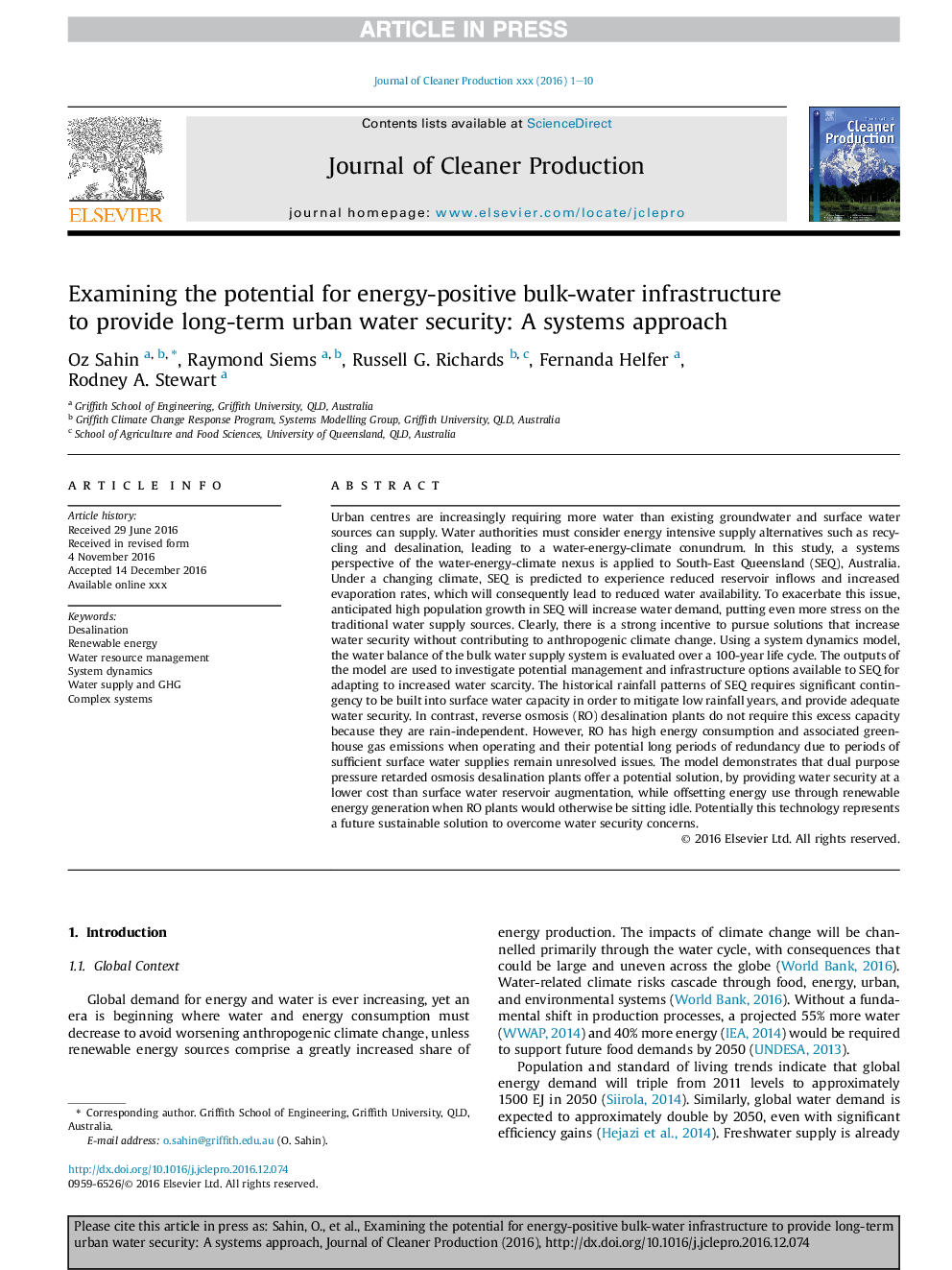| کد مقاله | کد نشریه | سال انتشار | مقاله انگلیسی | نسخه تمام متن |
|---|---|---|---|---|
| 5481105 | 1522110 | 2017 | 10 صفحه PDF | دانلود رایگان |
عنوان انگلیسی مقاله ISI
Examining the potential for energy-positive bulk-water infrastructure to provide long-term urban water security: A systems approach
ترجمه فارسی عنوان
بررسی پتانسیل زیرساخت های فاضلاب انرژی مثبت برای ارائه امنیت درازمدت آب شهری: رویکرد سیستم
دانلود مقاله + سفارش ترجمه
دانلود مقاله ISI انگلیسی
رایگان برای ایرانیان
کلمات کلیدی
موضوعات مرتبط
مهندسی و علوم پایه
مهندسی انرژی
انرژی های تجدید پذیر، توسعه پایدار و محیط زیست
چکیده انگلیسی
Urban centres are increasingly requiring more water than existing groundwater and surface water sources can supply. Water authorities must consider energy intensive supply alternatives such as recycling and desalination, leading to a water-energy-climate conundrum. In this study, a systems perspective of the water-energy-climate nexus is applied to South-East Queensland (SEQ), Australia. Under a changing climate, SEQ is predicted to experience reduced reservoir inflows and increased evaporation rates, which will consequently lead to reduced water availability. To exacerbate this issue, anticipated high population growth in SEQ will increase water demand, putting even more stress on the traditional water supply sources. Clearly, there is a strong incentive to pursue solutions that increase water security without contributing to anthropogenic climate change. Using a system dynamics model, the water balance of the bulk water supply system is evaluated over a 100-year life cycle. The outputs of the model are used to investigate potential management and infrastructure options available to SEQ for adapting to increased water scarcity. The historical rainfall patterns of SEQ requires significant contingency to be built into surface water capacity in order to mitigate low rainfall years, and provide adequate water security. In contrast, reverse osmosis (RO) desalination plants do not require this excess capacity because they are rain-independent. However, RO has high energy consumption and associated greenhouse gas emissions when operating and their potential long periods of redundancy due to periods of sufficient surface water supplies remain unresolved issues. The model demonstrates that dual purpose pressure retarded osmosis desalination plants offer a potential solution, by providing water security at a lower cost than surface water reservoir augmentation, while offsetting energy use through renewable energy generation when RO plants would otherwise be sitting idle. Potentially this technology represents a future sustainable solution to overcome water security concerns.
ناشر
Database: Elsevier - ScienceDirect (ساینس دایرکت)
Journal: Journal of Cleaner Production - Volume 143, 1 February 2017, Pages 557-566
Journal: Journal of Cleaner Production - Volume 143, 1 February 2017, Pages 557-566
نویسندگان
Oz Sahin, Raymond Siems, Russell G. Richards, Fernanda Helfer, Rodney A. Stewart,
